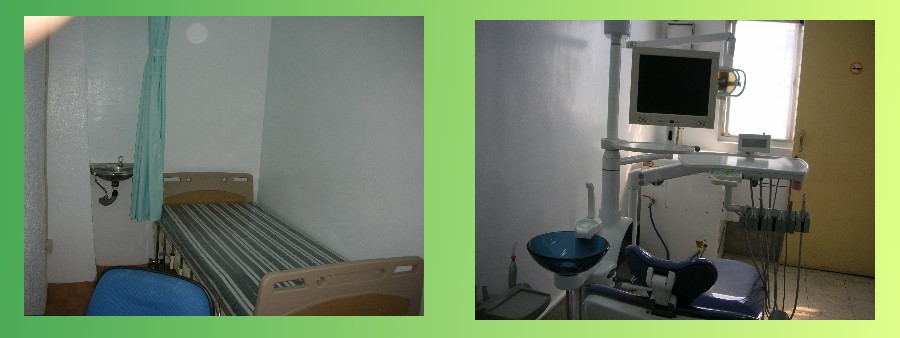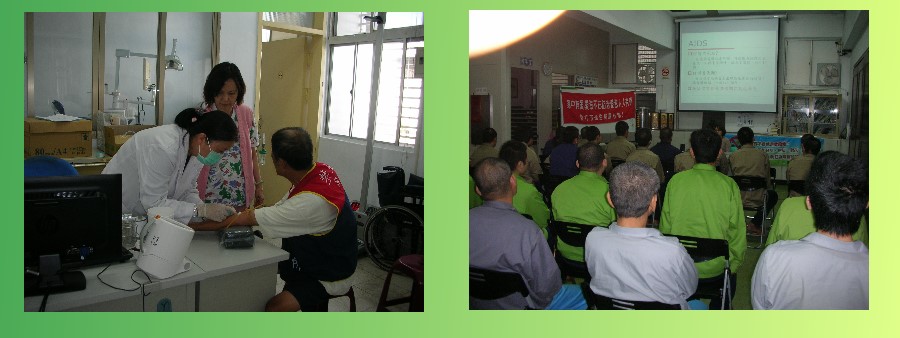HEALTH AND HYGIENE
- Publication Date :
- Last updated:2024-04-12
- View count:2055
Inmates of correctional facilities should be penalized for their unlawful conduct but their health should not be diminished because they are incarcerated. Proper medical care has to be carried out to maintain inmates' health. Health and hygiene not only trear sick inmates but also help to calm them and reduce security incidents. The House's Health and Hygiene Section has a contracted medical doctor, a nurse, and a pharmacist on staff to handle inmates' medical needs.
Preventive measures: with attention to environmental sanitation, a designated person is responsible for the daily cleaning and regularly scheduled disinfections in inmates quarters, ditches, bathrooms, and hidden areas. The local health department is contacted regularly to schedule inoculations, X-ray screening, health check ups, and kitchen and food inspections to prevent the propagation or the spread of diseases and maintain the health of the inmates.
Treatment of diseases: the House's contract medical doctors are responsible for treating inmates with ordinary illnesses. For major illnesses or emergencies, inmates are sent to big hospitals for treatment. Special care is given to older and disabled inmates. HIV antibody screening is performed on blood samples taken from new inmates; those who test positive will be quarantined for observation and submitted to the Health Center for tracking and follow-ups.
Physical check-ups are conducted on inmates upon admittance. Re-examinations are held every season. Any diseases are treated immediately upon discovery.
Routine urine test: to prevent drugs from entering the facility, the House performs scheduled and unannounced urine tests on inmates. Inmates who test positive will be submitted for prosecution without exception.

Photo--examination room

Photo--provide treatment & AIDS Prevention Guidance

